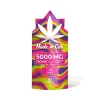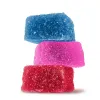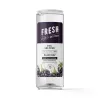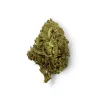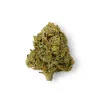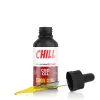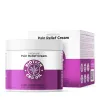In recent years, there has been a surge of interest in harnessing the potential benefits of CBD for pets, and this trend is particularly pronounced among owners of small dog breeds.
As more and more pet owners explore alternative therapies to enhance the well-being of their furry companions, it becomes increasingly crucial to understand the significance of proper CBD dosage.
CBD, or cannabidiol, has shown promise in addressing various health concerns in dogs, including anxiety, pain, inflammation, and seizures. However, just like with any other form of medication or supplement, determining the appropriate CBD dosage is essential to ensure both the safety and effectiveness of the treatment.
This article is dedicated to helping pet owners navigate the intricate world of CBD dosing for small dog breeds. We will delve into the key factors that influence dosage, provide practical tips for calculating the right amount of CBD, and offer insights to maximize the benefits while minimizing potential risks for your beloved pint-sized pets.
Whether you're a seasoned CBD user or a curious newcomer, this guide aims to empower you with the knowledge needed to strike the perfect balance in your small dog's CBD regimen.
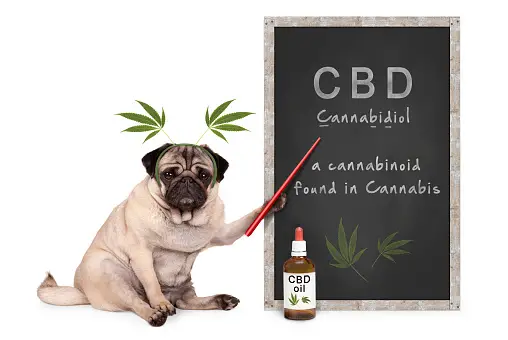
The Benefits of CBD for Small Dogs
Small dog breeds often grapple with issues like anxiety, pain, and overall well-being, and CBD has emerged as a potential solution. CBD, or cannabidiol, can provide relief by interacting with the endocannabinoid system (ECS) in dogs.
It helps ease anxiety, making stressful situations more manageable, and offers pain management through its anti-inflammatory properties, benefiting dogs with joint problems or chronic pain. Additionally, CBD can improve your small dog's overall health by supporting various bodily functions, including appetite, sleep, and immune response, leading to a happier and more energetic pet.
The ECS plays a pivotal role in how CBD affects small dogs. It comprises receptors, endocannabinoids, and enzymes, which regulate physiological processes. When CBD is introduced into your dog's system, it interacts with ECS receptors, such as CB1 and CB2, to modulate functions.
For example, it may reduce anxiety by interacting with CB1 receptors in the brain, promoting relaxation, or alleviate pain and inflammation by engaging CB2 receptors in the immune system, leading to reduced discomfort.
The surge in interest in CBD for small dogs reflects the broader trend of pet owners seeking holistic and natural alternatives for their pets' well-being. As more pet owners experience the positive effects of CBD, the demand for high-quality CBD pet products continues to grow.
However, it's crucial to consult with a veterinarian before starting a CBD regimen to ensure safe and suitable usage, especially if your pet has specific health conditions or is taking other medications. CBD has shown significant promise in enhancing the quality of life for small dog breeds, offering a natural and effective solution to common health concerns.
Factors Influencing CBD Dosage
Several key factors can significantly impact the appropriate CBD dosage for small dogs:
|
Factors Influencing CBD Dosage for Small Dogs |
Description |
|---|---|
|
Weight |
Small dogs typically need lower doses, while larger dogs may require higher amounts. Dosages are often calculated in mg of CBD per kg of body weight. |
|
Age |
Age can affect metabolism and sensitivity, with younger dogs possibly requiring different dosages than older dogs. |
|
Individual Sensitivity |
Each dog is unique, and their response to CBD can vary. Some may need higher or lower doses for effectiveness. |
|
Potency of CBD Products |
The concentration or potency of the CBD product impacts dosage, with higher-potency products requiring smaller volumes for the same dosage. |
|
Severity of the Condition |
The seriousness of the condition being treated can influence the dosage, with mild issues requiring lower doses and severe conditions needing higher doses. |
Before starting any CBD treatment for your small dog, it's critical to consult with a veterinarian who is knowledgeable about CBD use in pets. A vet can provide personalized guidance based on your dog's specific needs, medical history, and any potential interactions with other medications.
Veterinarians can also recommend reputable CBD products specifically formulated for pets, ensuring safety and quality. They may help you establish a starting dosage and provide guidance on how to monitor your dog's response and adjust the dosage as needed.
Determining the right CBD dosage for small dogs involves considering factors such as weight, age, individual sensitivity, product potency, and the severity of the condition. Consulting with a veterinarian is paramount to ensure the safe and effective use of CBD for your furry companion. Your vet can offer tailored recommendations that prioritize your dog's health and well-being.
Calculating CBD Dosage for Small Dogs
Determining the correct CBD dosage for your small dog is crucial to ensure their safety and effectiveness of treatment. Dosage is typically measured in milligrams per kilogram (mg/kg) of your dog's body weight. Here's a step-by-step guide on how to calculate the CBD dosage:
Step 1: Weigh Your Dog
-
Use a scale to accurately measure your dog's weight in kilograms (kg). If your scale provides weight in pounds (lbs), you can convert it to kilograms by dividing the weight in pounds by 2.20462, as 1 kg equals approximately 2.205 lbs.
Step 2: Determine the Dosage Range
-
CBD dosages for small dogs can vary, but a common starting point is 0.05 mg/kg to 0.25 mg/kg. The lower end of this range is for mild issues, while the higher end is for more severe conditions. Consult your veterinarian for specific recommendations based on your dog's needs.
Step 3: Calculate the Dosage
-
Multiply your dog's weight in kilograms (from Step 1) by the desired dosage range (e.g., 0.05 mg/kg to 0.25 mg/kg) to determine the recommended CBD dosage. This calculation will provide you with a dosage range based on your dog's weight.
Step 4: Adjust Based on Sensitivity
-
Every dog is unique, and individual sensitivity to CBD can vary. Start with the lower end of the recommended dosage range and monitor your dog's response. If needed, gradually increase the dosage while observing for any adverse effects or improvements in their condition.
Step 5: Example Dosage Calculations
-
Example 1: A 5-kg (11-lb) dog with mild anxiety
-
Weight: 5 kg
-
Dosage Range: 0.05 mg/kg to 0.25 mg/kg
-
Recommended Dosage: 0.05 mg/kg x 5 kg = 0.25 mg
-
Start with 0.25 mg of CBD for mild anxiety.
-
-
Example 2: A 10-kg (22-lb) dog with moderate joint pain
-
Weight: 10 kg
-
Dosage Range: 0.05 mg/kg to 0.25 mg/kg
-
Recommended Dosage: 0.1 mg/kg x 10 kg = 1 mg
-
Start with 1 mg of CBD for moderate joint pain.
-
-
Example 3: A 2-kg (4.4-lb) puppy with mild sleep issues
-
Weight: 2 kg
-
Dosage Range: 0.05 mg/kg to 0.25 mg/kg
-
Recommended Dosage: 0.05 mg/kg x 2 kg = 0.1 mg
-
Start with 0.1 mg of CBD for mild sleep issues in the puppy.
-
Remember that these are just starting points, and individual dogs may require adjustments to find the optimal CBD dosage. Always consult with your veterinarian before starting any CBD treatment, and closely monitor your dog's response to ensure their well-being and comfort. Adjust the dosage as needed based on their specific needs and any guidance provided by your vet.
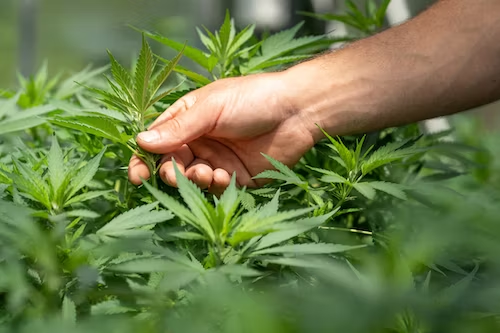
Starting Low and Slow
The "start low and go slow" approach to CBD dosing for pets is a fundamental guideline that emphasizes caution and safety when introducing cannabidiol into a pet's regimen. This principle is especially crucial when dealing with CBD, as the ideal dosage can vary significantly among individual animals. Here's a detailed explanation of this approach:
When starting your pet on a CBD regimen, it's recommended to administer the lowest effective dose within the suggested dosage range for their weight and condition. Starting with a minimal dose minimizes the risk of adverse effects and allows you to gauge your pet's initial response.
After introducing the initial low dose, closely observe your pet's behavior, mood, and any changes in their condition. If you do not see the desired results, or if the symptoms persist, you can incrementally increase the CBD dosage. This should be done slowly and in small increments to avoid overmedication.
Throughout this process, it's crucial to maintain open communication with your veterinarian. They can offer guidance, provide recommendations, and help you make informed decisions about adjusting the dosage. Your vet's expertise ensures that your pet's health and safety remain a top priority.
Potential Benefits of the Approach:
The "start low and go slow" approach offers several advantages:
-
Safety: It minimizes the risk of giving your pet too much CBD too soon, reducing the chance of adverse reactions.
-
Effectiveness: By gradually increasing the dosage while closely monitoring your pet, you're more likely to find the optimal dose that produces the desired effects.
-
Customization: Each pet is unique, and this approach allows you to tailor the CBD dosage to your specific animal's needs, ensuring a personalized and effective treatment plan.
In conclusion, when introducing CBD to your pet's routine, it's wise to adopt the "start low and go slow" approach. This method prioritizes your pet's safety and well-being while enabling you to find the right CBD dosage for their unique requirements through careful observation and incremental adjustments.
CBD Product Types and Administration
CBD tinctures offer versatility and ease of dosage adjustment, making them a popular choice for pet owners. They can be administered directly under the tongue for fast absorption or mixed with your pet's food. However, some pets may resist the dropper, and precise dosing can be challenging without accurate measurement.
CBD-infused treats are a convenient and tasty way to administer CBD to your pet, often resembling regular pet treats. They are easy to administer and can mask the taste of CBD, making them a favorite among many pets. However, it's essential to choose high-quality treats, as some may contain additional ingredients. Dosing precision may also vary depending on the size of the treat.
Capsules provide precise dosing and are odorless and tasteless, making them an option for pets with sensitive palates. They can be easily administered with food. However, some pets may struggle with swallowing capsules, and their absorption may be slower compared to tinctures.
Choosing the right administration method depends on your pet's preferences and specific needs, so consider these pros and cons when selecting a CBD product.
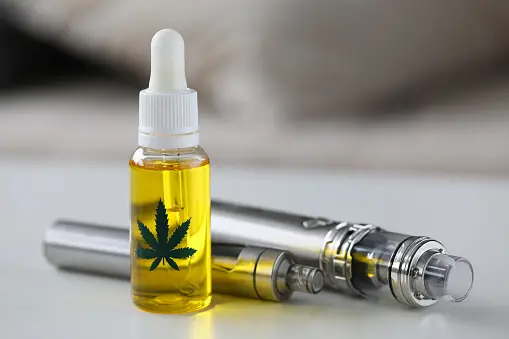
Monitoring Your Dog's Response
Effectively monitoring your dog's response to CBD treatment is essential for their well-being and ensuring the treatment's effectiveness. Look for signs of improvement, such as reduced anxiety or improved mobility, as these indicate that the CBD is having a positive impact.
However, be aware of potential side effects, including dry mouth or drowsiness, and consult your veterinarian if you observe any concerning symptoms.
Maintain a record of your dog's CBD treatment, documenting the date, time, dosage, and any observed changes in behavior or condition. This journal will help you track progress and make informed decisions about dosage adjustments.
Consistent communication with your veterinarian is vital throughout the treatment process to ensure your dog's safety and address any questions or concerns that may arise. By being vigilant and patient, you can optimize the benefits of CBD for your furry companion and enhance their overall quality of life.
Consulting a Veterinarian
Veterinarians possess crucial insights into your dog's health history, including any pre-existing conditions or medications they may be taking. This information is vital as it helps your vet assess potential interactions between CBD and existing treatments.
Veterinarians play a pivotal role in determining the optimal CBD dosage and treatment plan tailored to your small dog's specific needs. Their expertise ensures that you administer CBD safely and effectively to address your dog's concerns, whether it's anxiety, pain, or overall well-being.
Professional guidance from a veterinarian is invaluable in navigating the intricate world of CBD for pets. Your vet can recommend high-quality CBD products formulated for animals and provide accurate dosing instructions. They remain a trusted resource, offering advice on potential side effects and ensuring the best possible outcome for your dog.
In conclusion, consulting a veterinarian before introducing CBD to your small dog's regimen is essential for a safe and successful treatment journey. Your vet's expertise helps determine the right CBD product, dosage, and treatment plan while considering your dog's health history and existing medications.
Their guidance ensures that CBD enhances your dog's quality of life without compromising their health and well-being.
Potential Side Effects and Safety
CBD is generally considered safe for small dogs, and side effects are relatively rare and mild in most cases. However, it's essential to be aware of potential side effects and how to respond:
-
Drowsiness is one of the most common side effects of CBD in dogs. Some pets may become more relaxed or sleepy after taking CBD. This effect is generally mild and temporary, often disappearing as the dog's body adjusts to the CBD.
-
CBD may influence your dog's appetite, either increasing or decreasing it. This effect can be beneficial for dogs with appetite issues but should be monitored, especially if your dog has specific dietary needs.
-
It's important to emphasize that severe or adverse reactions to CBD in small dogs are exceptionally rare. Most reported side effects are mild and temporary, typically disappearing within a short time.
Recognizing Signs of Discomfort:
-
While rare, if your small dog experiences any signs of discomfort or unusual reactions after starting CBD, it's essential to take action:
-
Excessive Drowsiness: If your dog seems excessively lethargic or struggles to stay awake, discontinue CBD and consult your veterinarian.
-
Changes in Behavior: Monitor your dog for any abrupt changes in behavior, mood, or activity levels.
-
Digestive Issues: If your dog experiences gastrointestinal discomfort or vomiting, stop CBD use and seek veterinary advice.
If you observe persistent or severe side effects in your small dog, or if you are unsure about their well-being, do not hesitate to consult your veterinarian. They can provide guidance on whether to adjust the dosage, switch to a different CBD product, or discontinue use if necessary.
In conclusion, while side effects of CBD in small dogs are rare and generally mild, it's essential to be attentive to your pet's response. Monitor for signs of discomfort, and if any issues arise, consult your veterinarian promptly. Their expertise ensures your dog's safety and well-being throughout their CBD treatment journey.
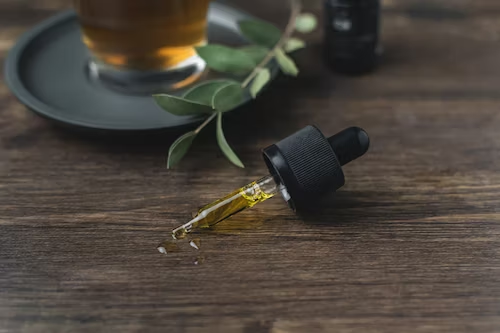
Enhancing Well-Being with CBD
To summarize the discussed points:
-
CBD offers potential benefits for small dog breeds, including anxiety relief, pain management, and overall pet health enhancement.
-
Calculating the right CBD dosage, considering factors like weight and age, is crucial.
-
A cautious "start low and go slow" approach is recommended for safety and effectiveness.
-
Various CBD product types for pets were introduced, each with its pros and cons.
-
Administering CBD to small dogs should prioritize ease and comfort.
-
Monitoring your dog's response to CBD, identifying signs of improvement, potential side effects, and maintaining records for tracking progress is essential.
-
Consulting a veterinarian before introducing CBD to your small dog's routine is of utmost importance for responsible usage and improved well-being in small dog breeds.

